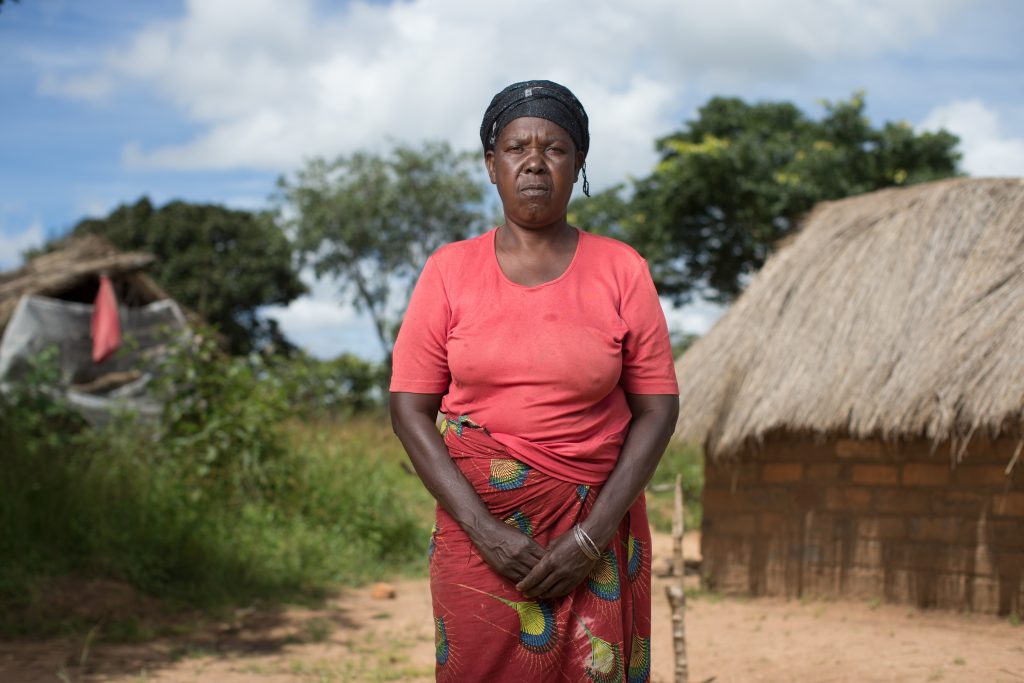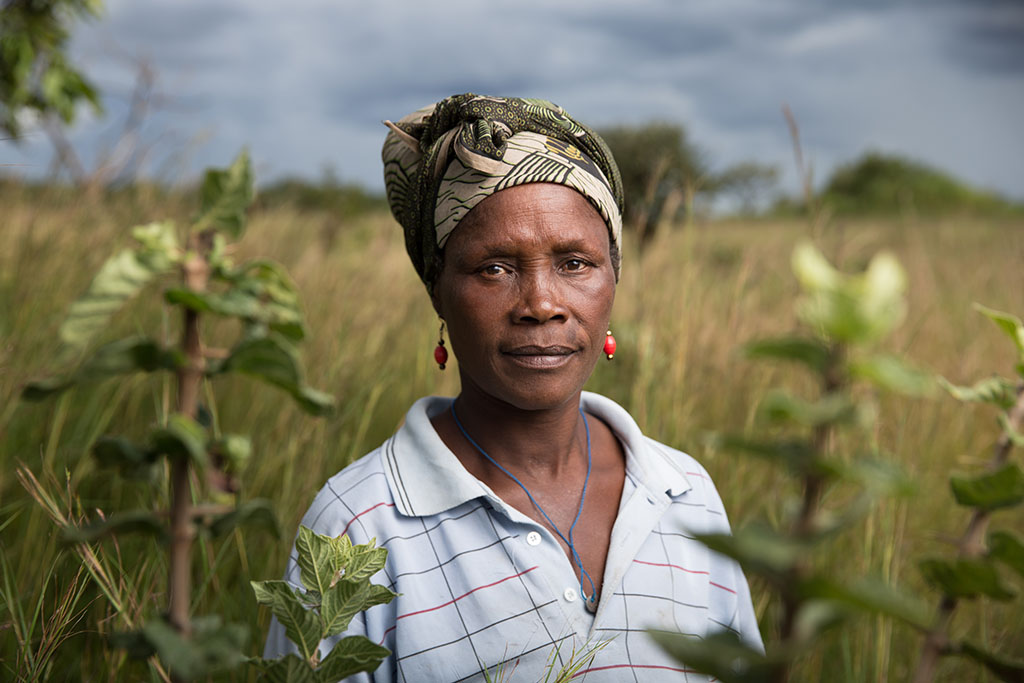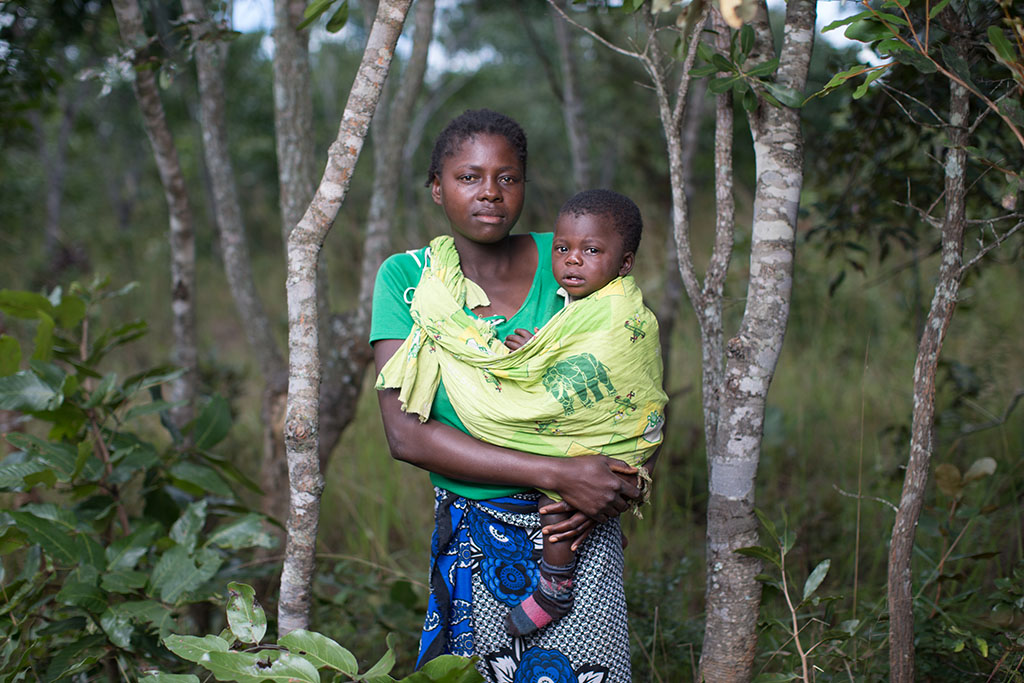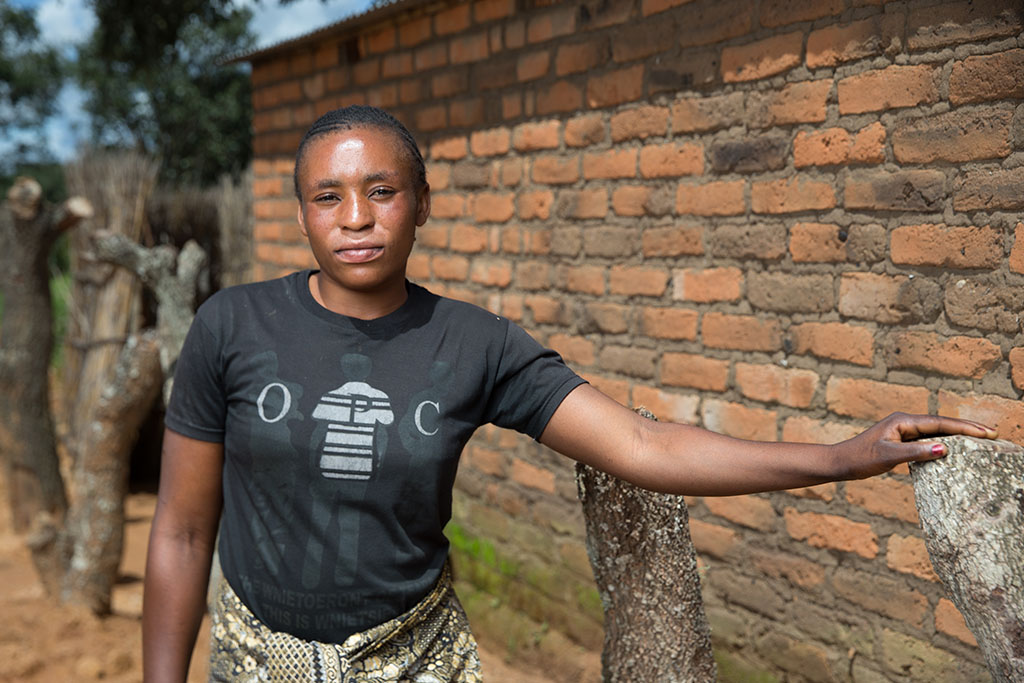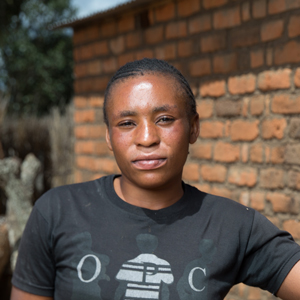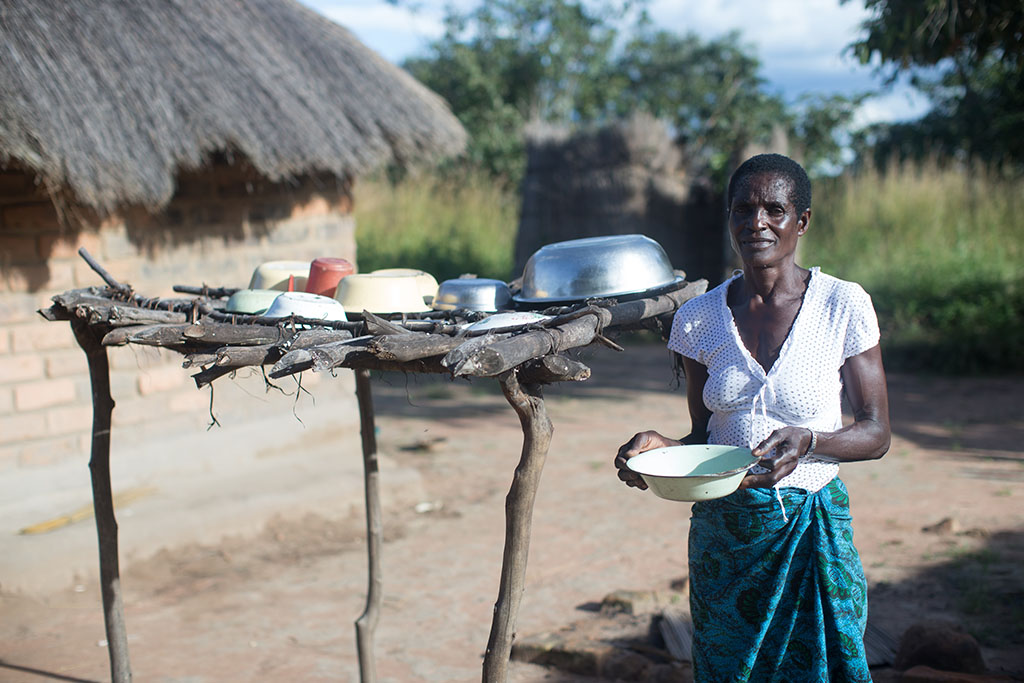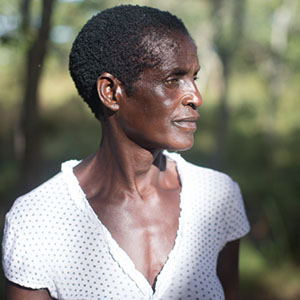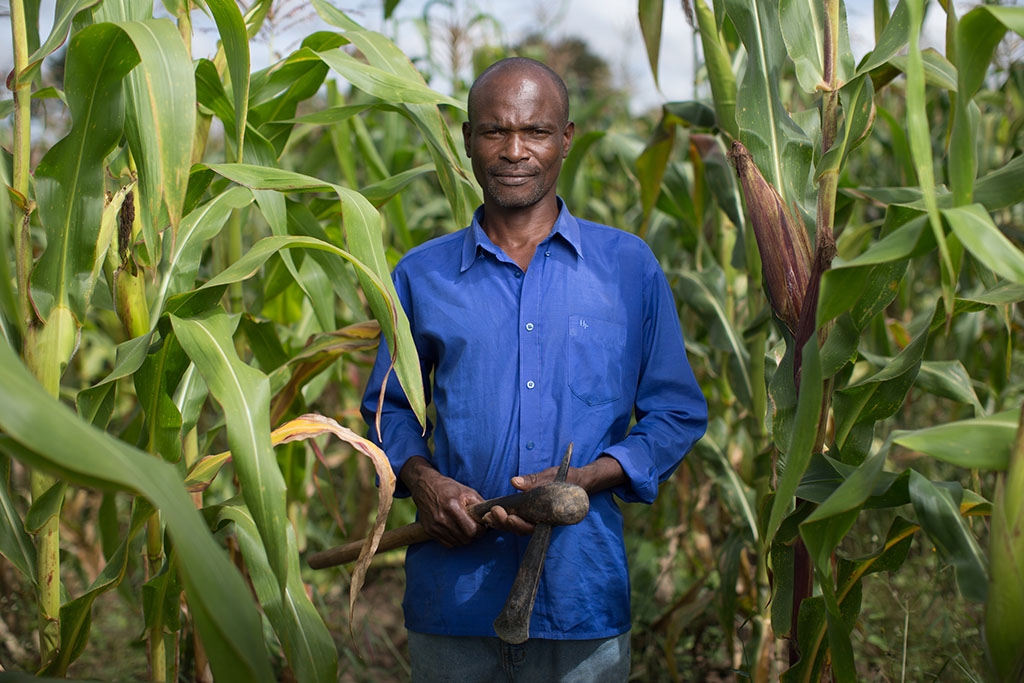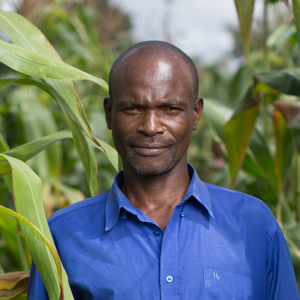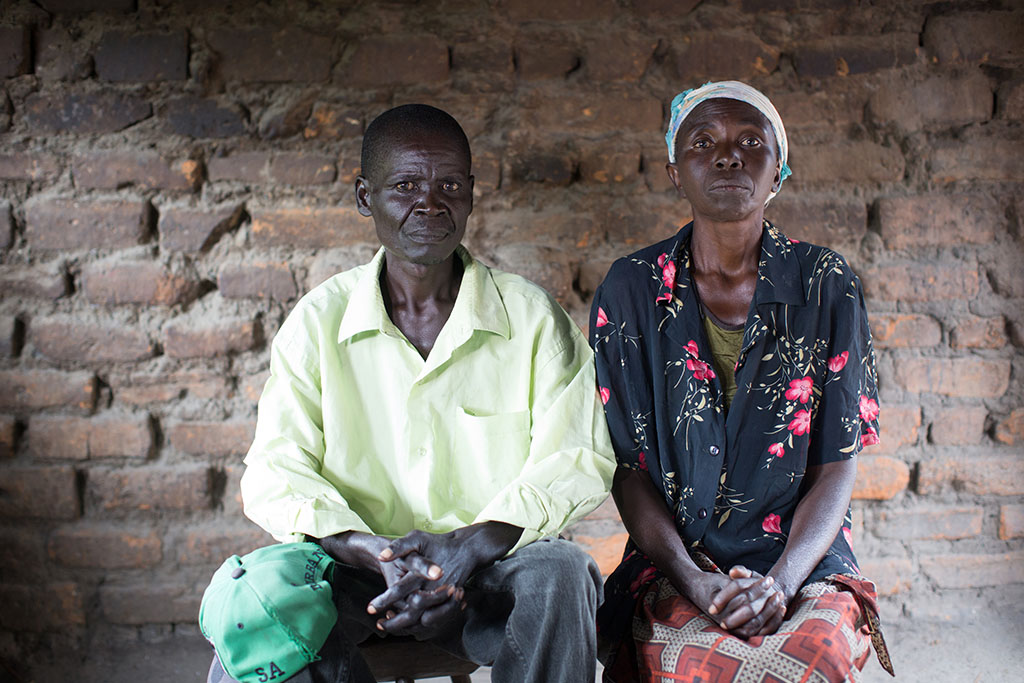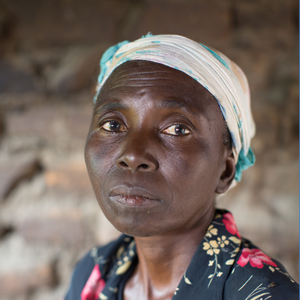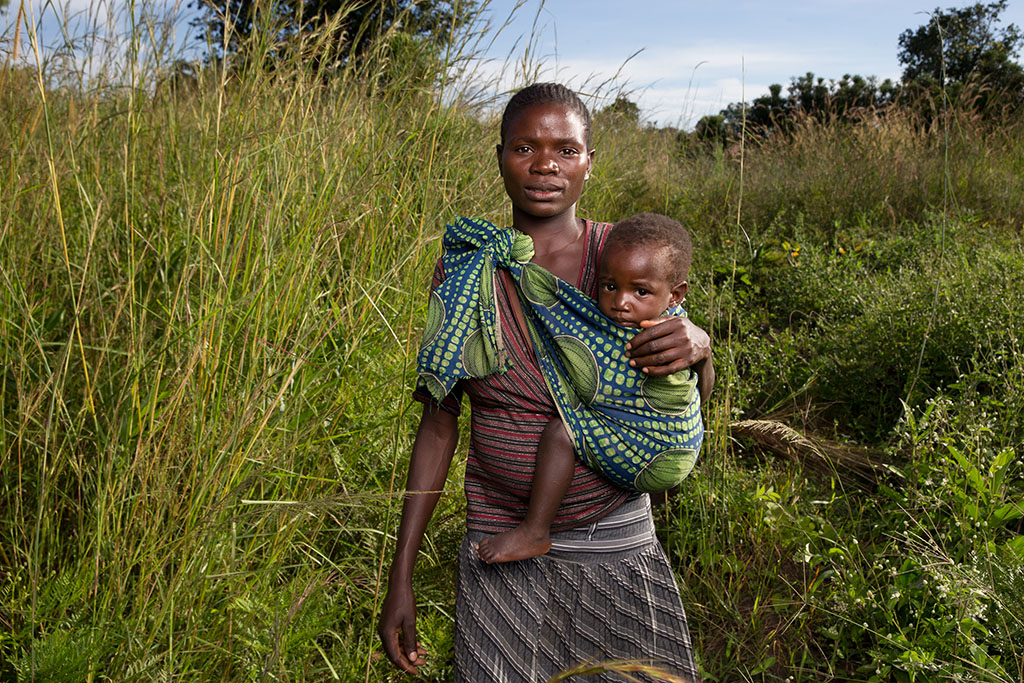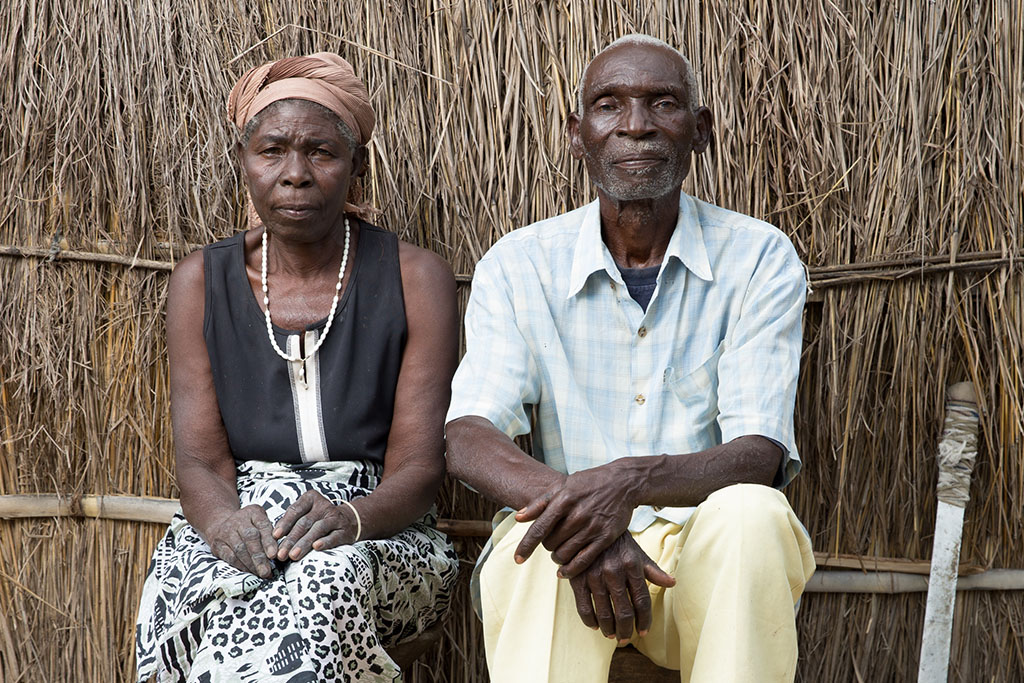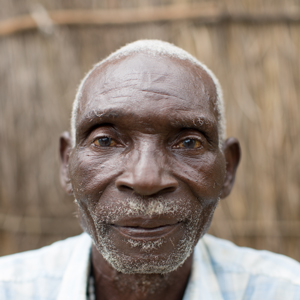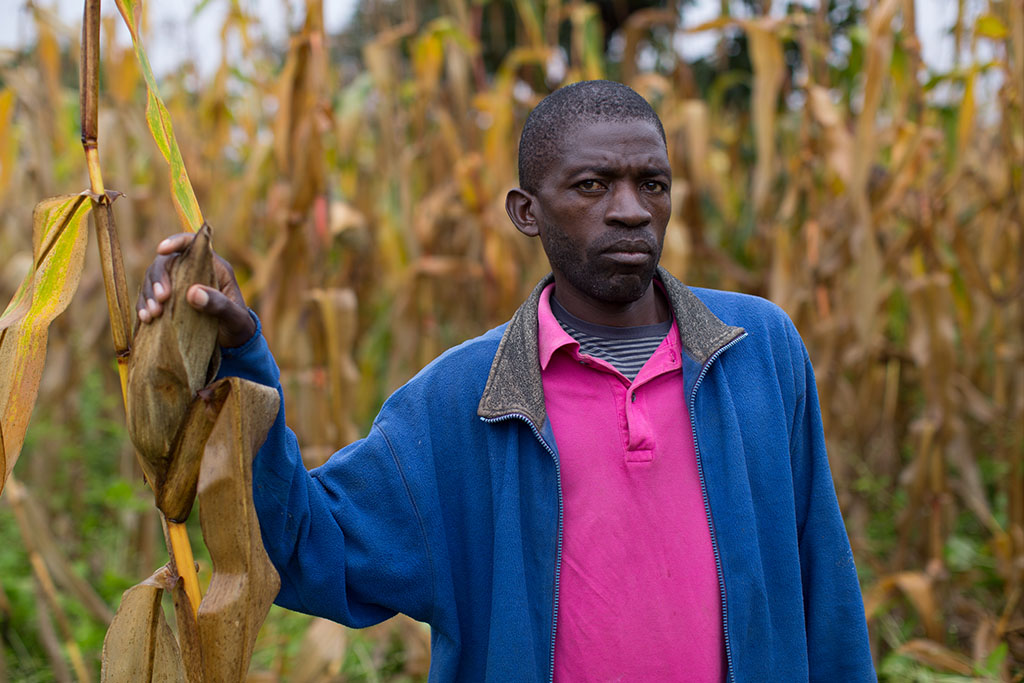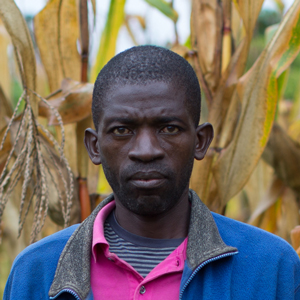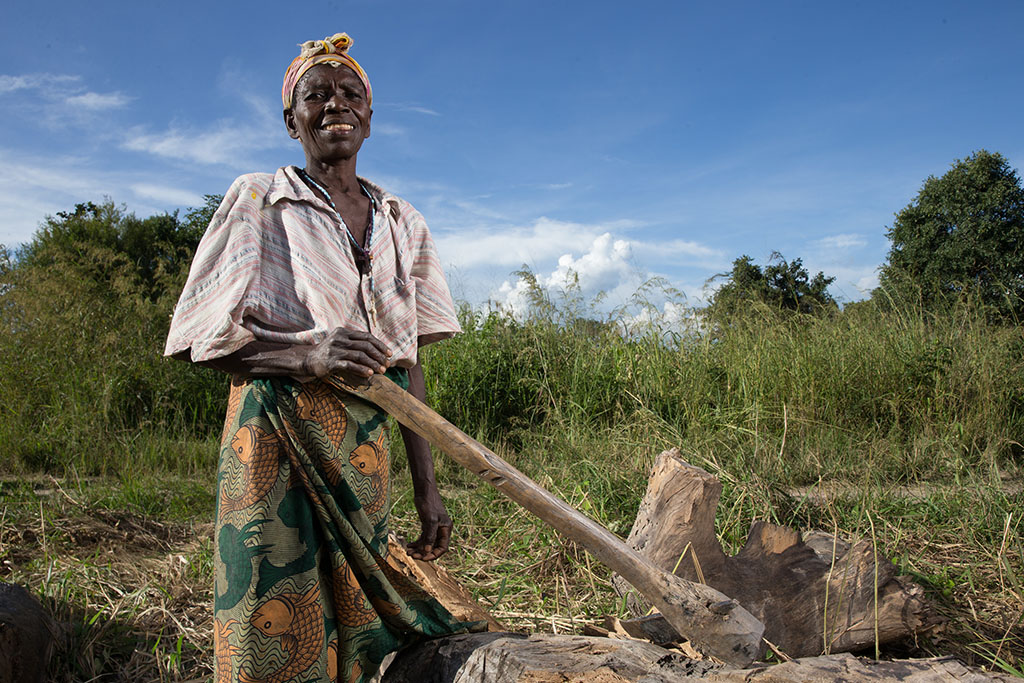2 villages / 3 years
A tale of two villages
Nsunda and Malela are two quiet villages in a remote corner of Zambia’s Northern Province
The people are poor. They have limited access to the outside world and, in the main, they struggle, from year to year, to make ends meet. Most households rely on farming. Most farms, however, don’t produce enough food to feed a family for a year.
But who are the people of Malela and Nsunda? What are their hopes and dreams for the future?
For four years, Self Help Africa visited the villages and followed the lives of its people. What follows are their stories…
The Project

Irish Aid Local Development Project
For five years, Self Help Africa has been working in Zambia’s far north, on an Irish Aid backed project that covers Mbala and Luwingu districts. In this remote poverty pocket, support services are scarce to non-existent. For a part of the year, many people survive on just a single meal a day.
The villagers of Malela and Nsunda are amongst 80,000 people in the far north that the project is assisting.
the goals
End Poverty
Lift 16,000 vulnerable households out of poverty in Mbala and Luwingu districts
Improve nutrition
Provide a better nutrition, food and health status for 80,000 people
Facilitate Entrepreneurship
Improve access to markets and promote a market-oriented approach
The APPROACH

SAVINGS & CREDIT
56 community-based savings and credit groups encourage saving and provide loans to support small income-generating businesses.

CROPS & LIVESTOCK
Lead farmers receive farm training, new agricultural methods are introduced, livestock breeding and new crops are promoted.

ACCESS TO SUPPORT
Stronger and more effective links are developed between local communities and existing support networks.
GENDER EQUALITY
Women receive equal support and their participation in local decision-making is promoted.
“If somebody who left this village two years ago were to come back today, they would be confused. There have been a lot of changes and our lives are getting better.”- Grenda Mapondwe, Nsunda Village
NSUNDA
- Connector.Connector.
Location
Nsunda is situated more than 150 km away from the populated city of Mbala, on the edge of a wide dirt road that is the main artery connecting the region to Tanzania.
- Connector.Connector.
Food
Before the project started, only 58% of households were able to buy or to grow enough food to meet the needs of their family throughout the year.
- Connector.Connector.
Health
Across the district, 80% of households access water from unsafe or unprotected sources.
- Connector.Connector.
Trade
A road building scheme, well under way, is opening up new opportunities for local farmers, who are increasingly trading their crops with passing trucks and buses.
MALELA
- Connector.Connector.
Location
On the heavily-rutted track connecting Malela to Luwingu, the nearest significant centre of population, vehicles are rarely seen. The village is close to the end of the line – very few have ventured as far as Luwingu.
- Connector.Connector.
Food
During the lean season, lasting 2 to 3 months, most people in Malela only eat a single meal a day.
- Connector.Connector.
Health
Across the district, 53% of children under five are stunted, a number higher than the national average (45%).
- Connector.Connector.
Trade
The poor state of the road means very few opportunities for trade. However, the recent improvements in agriculture is prompting local farmers to think of ways they could reach markets in the future.
The people of Nsunda
Felister Nsamfukwe
The Business WomanFelister Namfukwe left her husband a few years ago.
He was abusive towards her, she says. From then on, she had to manage her farm and provide for her family on her own.When she joined the project, Felister was given the chance of a new start…Her Story


Dorothy
The resolute grandmother
Dorothy Kansungwa, 73, has to face the difficulties of life on her own. Her husband and seven of her eight children have passed away.
Her Story
showthem
The community leader
Aged 54, Showthem Ikiombe carries a lot on his shoulders. He’s responsible for the wellbeing of his community and has to provide for his six dependents.
his story

Emma
The tireless farmer
Emma Kayela is a 58-year-old widow who farms six acres. Her biggest challenge is having to farm alone, as her seven children have left the village.
her story
Justina
The young mother
19-year-old Justina struggles to care for her baby Eric. As both her parents passed away and her partner left when she fell pregnant, she can only count on herself.
her story
“I see how people are making the most of the things they have been taught. I’m sure they will keep using this knowledge in the future.”
- Felister Nsamfukwe, Nsunda Village
The people of Malela
Stephen Linga
The Determined ChildLike dozens of other children in Malela, Stephen has hopes and dreams. While he’s still hesitating between two very different career paths, he is determined to finish his education. He helps his parents on their farm, so they can earn enough to pay for his school fees…His Story


Emmanuel
The ill grandfather
Due to illess, Emmanuel Musundo, 56, is limited in the work he can do on his farm. Affected with HIV, he puts all his energy into growing food for his family.
his story
rosemary
The lead farmer
The mother of seven is a model for other farmers in Malela. As a lead farmer, she helps her neighbours grow more food, and takes great pride in this role.
her story

pascalina
The active mother
Aged 22,
the mother of three juggles several jobs to earn a living for her children. She has also attended trainings to learn new skills.
her story
foster
The strong-willed grandmother
Grandmother to 19 children, Foster has survived off her poor harvests for many years, and today is doubling her efforts to increase her production.
her story
“I love Malela and don’t want to move from here. I love the land and the way I am able to go straight to the field, do my work and know I will be able to feed my children tomorrow.”
- Rosemary Chate, Malela Village
The Impact
INCREASED PRODUCTION
16,000 farmers (60% female) have increased their agricultural production following training from Self Help AfricaBETTER LIVING STANDARD
The percentage of households living below the standard of living threshold has reduced from 42% to 33%.SUFFICIENT FOOD
67% of households in the project area have access to sufficient food throughout the year, compared to 57% at the start of the project.
FEMALE VOICE HEARD
Over half of the female participants feel they have more decision-making power within their household and community.ACCESS TO FINANCE
17% of households have access to financial services thanks to savings and loan groups initiated by the project, compared to 2% before. Families reporting a significant increase in household assets, including cash savings increased from 0 to 30% percent.CHILDREN’S HEALTH
Chronic malnutrition amongst children (aged under 18 months) has reduced from 40% to 31.4%. In addition, 28% of children are receiving at least the minimum food diversity in their diets, compared to 17% before.IMPROVED HYGIENE
Households accessing safe, treated drinking water increased from 14% to 40%.FAMILY SECURITY
In Nsunda, 88% of households are able to cover their family’s basic needs for the whole year. Before the project, they were 58%.ENTERPRISE
62 local enterprise groups were formed, with a total of 1,860 members.
• 89% of households are optimistic about their future well being
• 57% of households say lives have improved
• 54% of households say quality and quantity of food have improvedAccording to a Qualitative Impact Study conducted by The University of Bath in the project area in 2017.
“My life is changing for the better. Years ago, I couldn’t look forward to the future…Now I can.” - Emma Kayela, Nsunda village
Watch Their Stories
2014 – Year One
In 2014, we travelled to Malela and Nsunda for the first time and met 24 people. Each one of them had a unique story to tell.
2015 – Year Two
In 2015, the people of Malela and Nsunda told us about the changes they were starting to see in their community, and shared the challenges they faced over the past year.
2016 – Year Three
In 2016, the people of Malela and Nsunda reported mixed fortunes – torrential rainfall causing severe crop losses for many farmers in Nsunda.
